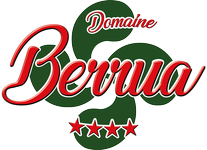Basque Culture
The Basque Country is a territory of traditions and culture. It is known for its fêtes and festivals which take place all year round.
Basque dance
Over and above the folklore aspect, Basque Country dance is a way of saluting or thanking somebody or solemnising a religious or social event.
There are a large number of Basque dances: the fandango (typical, mixed dance based on a waltz rhythm), the mutxikos – regularly organised on Sundays and you can join in or even the dances in open (line) or closed (circle) chains.
In every village you can see a Basque dance spectacle.
Basque songs
The Basque Country is peopled with singers. There isn’t a single family reunion that is not punctuated by traditional songs… in Euskara of course, even though most of the meaning escapes the guests.
About fifty secular choirs perpetuate this long tradition in the North Basque Country. Just watch a Grand Mass at Cambo or elsewhere to enjoy canticles sung in Euskara by choirs of women in the central nave and the men up high in the galleries so typical of the country churches.
Basque games of strength and skill
These have existed for centuries. They originated in the performance of everyday work when young Basques would call out challenges from farm to farm.
The most well known are: cutting a log with an axe, dragging a rock, lifting a rock, bow and arrow shooting etc. 16 sports are officially recognised…
You can discover them at the numerous festivals on offer during your Holidays in the Basque Country.
Immersion into the heart of the Basque culture
A territory with a strong cultural identity, the Basque Country has managed to preserve many lively festive and sporting traditions, a rich cuisine, and the oldest language in Western Europe still spoken in situ, Euskara.
From the province of Labourd to Soule and the Lower Navarre, the French territories of the Basque Country are united by a rich and varied culture as evidenced by the architecture and morphology of the picturesque villages and charming ports: rural sports such as Basque strength, pelota or tug-of-war, Basque songs and improvisation (improvisation sung in verse), traditional dances (Aurresku, Fandango, Jota, Lesaka sword dance, paloteadoa and mutxiko), or craft skills (Basque linen, chocolate, chilli, cheese, cutlery, espadrilles, cideries…).
This intangible cultural heritage is to be discovered through the many events, festivities and representations organised in Basque towns and villages, from the Atlantic coast to the foothills of the Pyrenees.
Truly exotic, the Basque Country is a territory with a typical and varied architectural heritage: between the neo-Basque villas in the seaside resorts, the labourdine houses on whose facades the peppers dry, the famous surf spots and the pediments present in each village.
Activities in the Basque Country
Find activities in the Basque Country for you.




